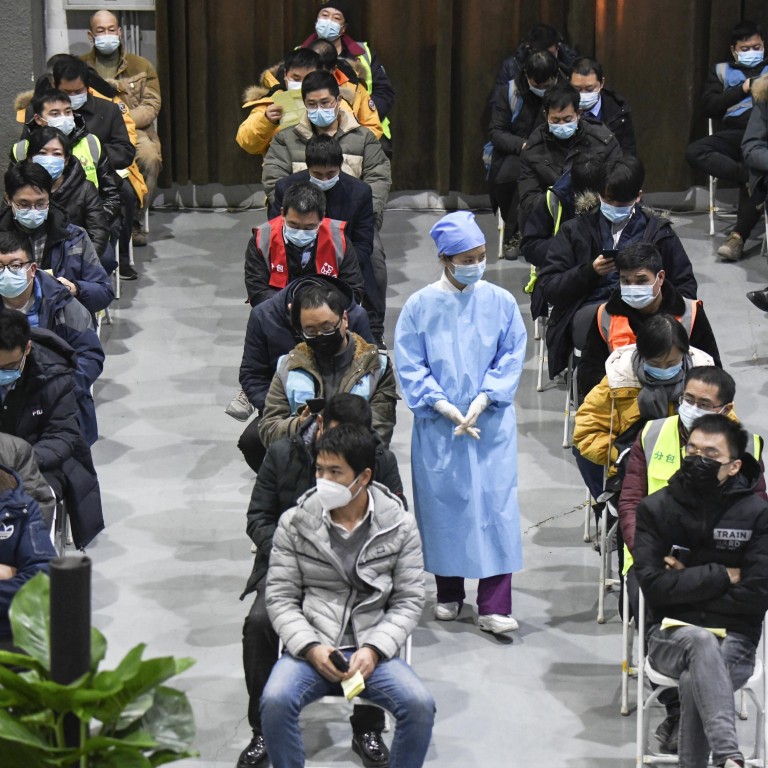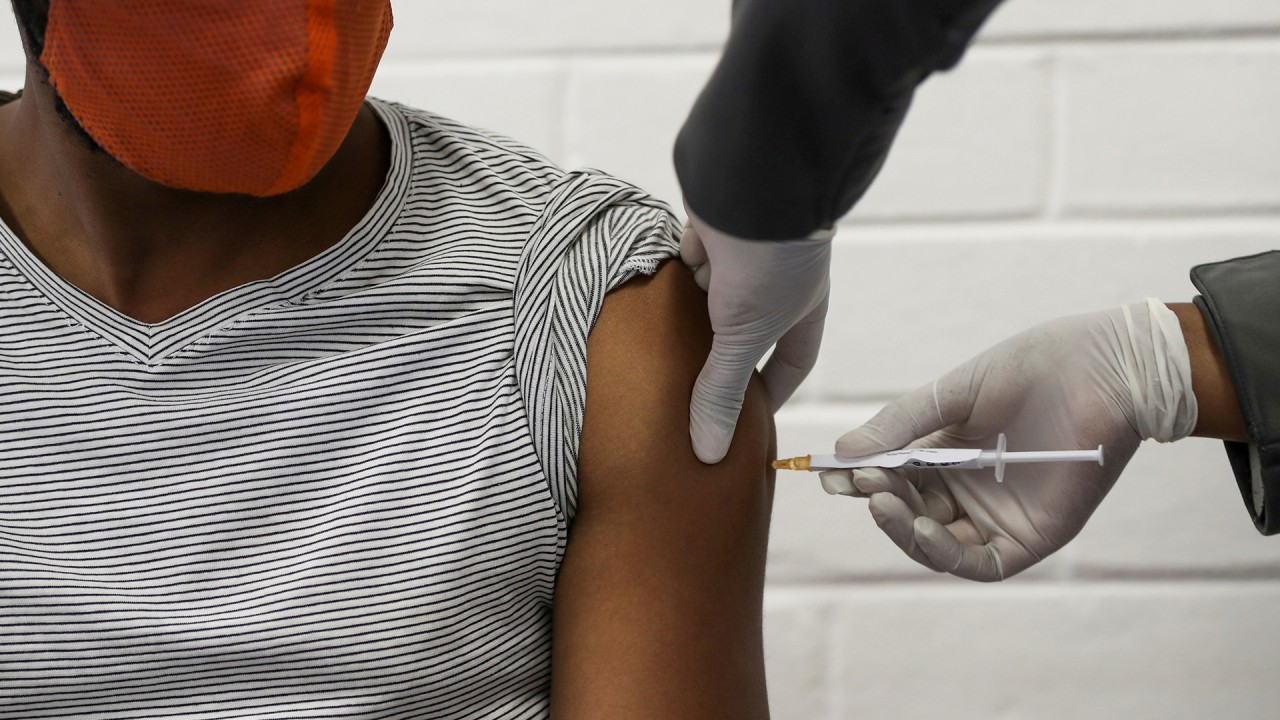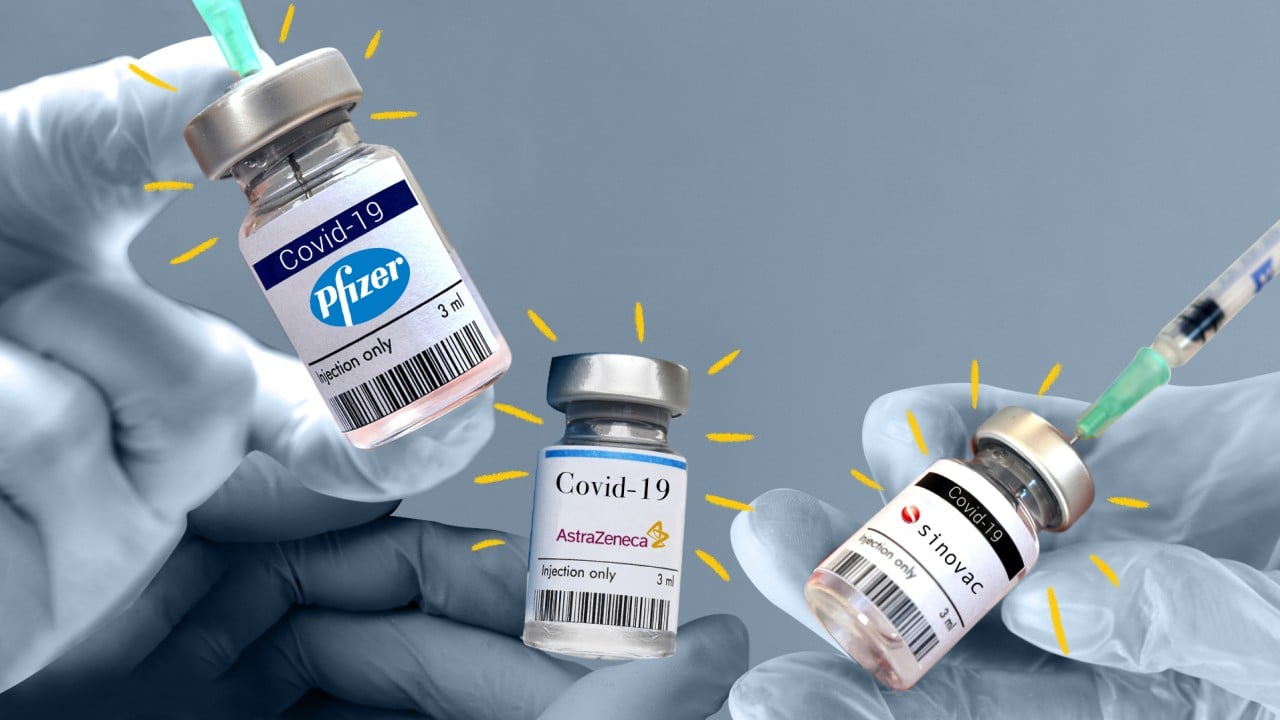
China’s public hesitant to take Covid-19 vaccines, another survey suggests
- In poll of medical and epidemic prevention workers in Zhejiang, fewer than half want emergency jab, and only a quarter say they will when available to all
- Coming after similar scepticism among Shanghai residents, it suggests ‘major hurdle for China to speed up vaccination’, expert says
The provincial disease control and prevention centre (CDC) in Zhejiang, neighbouring Shanghai, said its survey of health care and epidemic prevention workers found highly educated people and medical workers had low willingness to take a vaccine.
Released on Thursday, the figures suggested the country may face a challenge to inoculate enough people to achieve herd immunity.
Only 42 per cent of 756 health care and epidemic prevention workers surveyed said they would take the jab during the government-organised drive launched after some vaccines were approved for emergency use.

02:28
South Africans skeptical about Covid-19 vaccines as AstraZeneca rollout halted
Fewer still, only 28 per cent, said they were willing to get a shot of their own accord once the vaccines were on the market for all.
Most of those who were unwilling were worried about potential side-effects, said the study’s authors, who recommended more education about vaccines’ effectiveness and safety.
It follows a survey of almost 1.8 million Shanghai residents released last month by the municipal CDC, in which only half said they would get vaccinated.

09:50
SCMP Explains: What's the difference between the major Covid-19 vaccines?
“One of the biggest concerns remains this lack of enthusiasm over getting vaccinated among the public,” Huang said. “This is sort of counterintuitive. It’s precisely because [China] has done a good job containing the spread of the virus.
“People have adopted a wait-and-see attitude. That is probably the major hurdle for China to speed up the vaccination rate and achieve herd immunity.”
The attitude towards vaccines was different when China was at the height of its coronavirus outbreak. In a survey last March and April at a hospital in the southwestern city of Kunming, over 95 per cent of patients were willing to take a Covid-19 vaccine.
How Covid-19 vaccines can clear final regulatory hurdle
A lack of transparency over the data from clinical trials of Chinese-made vaccines is likely to undermine public trust, a team of University of Hong Kong public health experts said in a commentary in the Chinese CDC’s weekly bulletin last week.
“Openness and transparency are the only sure way of countering vaccine hesitancy,” the experts wrote. “Full and systematic disclosure of data from clinical trials and post-roll-out empirical studies is needed.”

